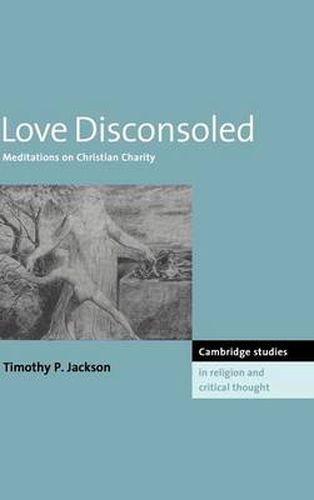Readings Newsletter
Become a Readings Member to make your shopping experience even easier.
Sign in or sign up for free!
You’re not far away from qualifying for FREE standard shipping within Australia
You’ve qualified for FREE standard shipping within Australia
The cart is loading…






Few concepts are more central to ethics than love, but none is more subject to false consolation. This book explores several theological, philosophical, and literary accounts of love, focusing on how it relates to matters such as self-interest and self-sacrifice, and invulnerability and immortality. Timothy Jackson first considers key aspects of what the Bible says about love, then he further examines the meaning of love and sacrifice through a close reading of novels by Fitzgerald and Hemingway. Lastly, he evaluates how love constrains, and is constrained by, other traditional moral concepts. Throughout, Jackson defends the moral priority of what the Christian tradition calls ‘agape’. He argues that a proper understanding of agapic love rejects both moral relativism and the comfort of believing that good people cannot be harmed, or that God causally necessitates every historical action and event. When love is thus disconsoled, it neither fears death nor despises life.
$9.00 standard shipping within Australia
FREE standard shipping within Australia for orders over $100.00
Express & International shipping calculated at checkout
Few concepts are more central to ethics than love, but none is more subject to false consolation. This book explores several theological, philosophical, and literary accounts of love, focusing on how it relates to matters such as self-interest and self-sacrifice, and invulnerability and immortality. Timothy Jackson first considers key aspects of what the Bible says about love, then he further examines the meaning of love and sacrifice through a close reading of novels by Fitzgerald and Hemingway. Lastly, he evaluates how love constrains, and is constrained by, other traditional moral concepts. Throughout, Jackson defends the moral priority of what the Christian tradition calls ‘agape’. He argues that a proper understanding of agapic love rejects both moral relativism and the comfort of believing that good people cannot be harmed, or that God causally necessitates every historical action and event. When love is thus disconsoled, it neither fears death nor despises life.